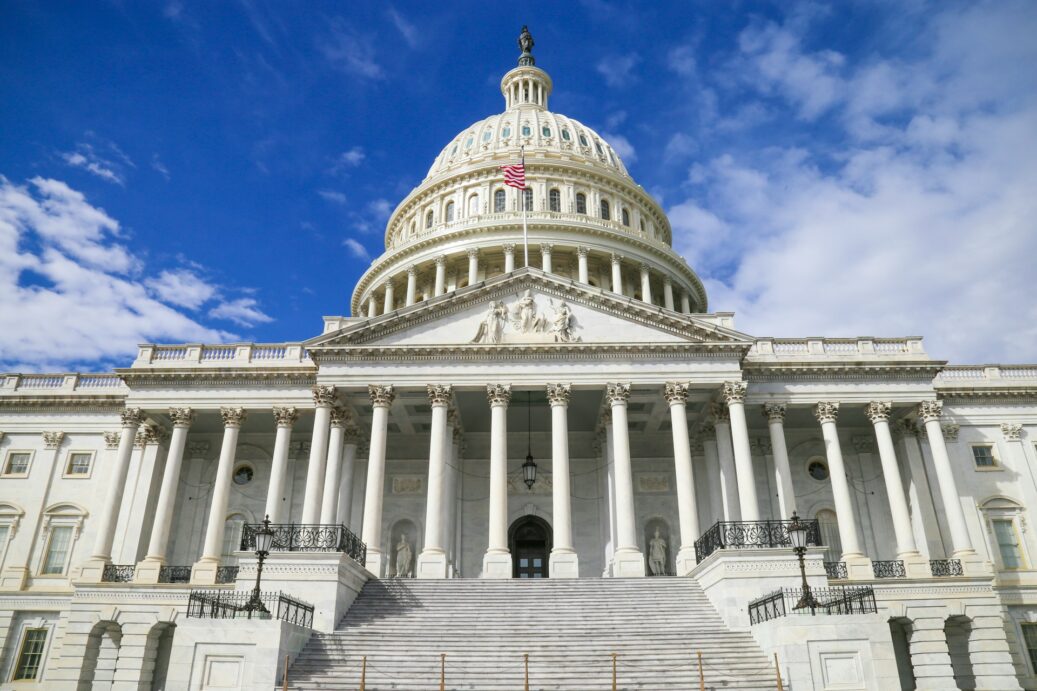Surely all of us were rattled by the bullets flying around Donald Trump this past weekend, wounding him and tragically killing an innocent bystander.
Whatever one’s political convictions, all should condemn the violence, be grateful that Trump was not seriously harmed, and grieve the innocent man who was killed protecting his family during the shooting. May every man be willing to be as selfless and sacrificial as him.
In the aftermath of the assassination attempt, a whirlwind of fiery rhetoric erupted online, including from politicians and Christians, calling for revenge, legal prosecutions, and/or God’s wrath to fall upon political enemies.
One can understand and forgive peoples’ initial reaction to this event; the violence was shocking, and emotions were high.
But as Christians, we are consistently called to seek the path of wisdom, and wisdom always takes its time to listen, reflect, and then react (Proverbs 3:13-15; James 1:19).
So, how should Christian men respond to such disturbing events?
But as Christians, we are consistently called to seek the path of wisdom, and wisdom always takes its time to listen, reflect, and then react (Proverbs 3:13-15; James 1:19).
When the assassination attempt unfolded, I said to my wife, “This is totally shocking—and somehow not surprising—all at the same time.”
Not because it was Trump but because the tone and rhetoric of the culture have been getting increasingly more vitriolic and destructive over the last number of years, on all sides.
Elections are no longer about competing visions for the best path forward; they are about good versus evil, us versus them, and using the strongest and, at times, vilest language to denounce and dehumanize people on the other side, all in the name of conviction.
Amidst the bitter and hate-filled language, a different voice emerged this weekend. It belonged to Melania Trump, the candidate’s wife.
However one feels about her or her politics, Melania released a statement the day after the shooting with words that sounded markedly different from the toxic and destructive language of our times. She reminded us of our common humanity and encouraged us to engage in gracious disagreement, even on important matters.
Whatever one’s opinion on politicians, or really any person they disagree with, the Christian honors all people, even if we oppose them, because all are made in God’s image and are deeply loved by Him (Genesis 1:27; John 3:16). When we lose this sense of shared God-made humanity and characterize other people by their beliefs that differ from ours, it is far too easy to demonize them, and harm can easily follow.
“Let us not forget that differing opinions, policy, and political games are inferior to love,” Melania wrote. “Political concepts are simple when compared to us, human beings.”
We are so much more than the party we vote for, and oversimplifying “the other side” into enemies we can rage at is unhealthy and ungodly behavior.
We may indeed have enemies out there. But Jesus taught us, “You have heard that it was said, ‘Love your neighbor and hate your enemy.’ But I tell you, love your enemies and pray for those who persecute you, that you may be children of your Father in heaven. He causes his sun to rise on the evil and the good, and sends rain on the righteous and the unrighteous. If you love those who love you, what reward will you get? Are not even the tax collectors doing that? And if you greet only your own people, what are you doing more than others? Do not even pagans do that? Be perfect, therefore, as your heavenly Father is perfect” (Matthew 5:43-48).
When we demonize those who are different from us based on matters of religion, politics, or whatever the case may be, we fall short of Christ’s words. Something about loving our enemies makes us look like our Father in Heaven, who also loves His enemies, sending blessings like sunshine and rain even on those who hate Him.
There is no extra credit for loving your family or loving those who agree with you; even atheists walk in that level of love.
Everyone loves those “on our side”; the greater love that the Christ-follower exemplifies comes from God Himself, who loved the world so much that He was willing to send His Son to pay the price for its sins (John 3:16).
There is no extra credit for loving your family or loving those who agree with you; even atheists walk in that level of love.
Given the level of love God has shown us and Jesus’ call to love our enemies, we Christians are to be a counter-voice in the divisive culture of our time, never losing our common humanity, never demonizing those who we disagree with or even those who actively oppose us.
We do not compromise our convictions, but in so doing, we nonetheless love our political, religious, and everyday enemies because, when we do, we look like our Father’s kids and bear witness to His great love for the world.
Melania puts things in perspective: “American politics are only one vehicle that can uplift our communities. Love, compassion, kindness and empathy are necessities.”
America is facing a contentious election year; Canada will face one soon enough. We do not put our hope in Trump, or Biden, or Trudeau, or Poilievre, or any leader or party or any earthly system. Politics is an instrument of this world, and while a Christian may engage with it, we are primarily citizens of a different Kingdom, one that is not of this world (John 18:36; Philippians 3:20).
In the way of that Kingdom, Christian men stand on and fight for their convictions but also love their enemies, praying earnestly for whoever is in charge at the moment (even if we don’t like them) (1 Timothy 2:1-2), and trusting that God is on His throne in Heaven regardless of who holds earthly power, and that there is nothing that can surprise or thwart Him who reigns over the nations (Psalm 2:1-12).
God is not anxious about any of this.
And even as we engage in cultural or political conversations and stand for our Christian convictions, this does not absolve us of our responsibility to look like Jesus as we do so.
When we walk and talk in terms of hatred, discord, rage, dissensions, and factions, we know we are walking in the flesh, and the flesh is not the way of Christ (Galatians 5:20-21). These qualities are abundant in this world in ever-increasing measure; we are called to be holy, wholly different from the world around us.
We can be confident that we are walking in the Spirit when we increasingly walk and talk in terms of love, joy, peace, patience, kindness, goodness, faithfulness, gentleness, and self-control, even towards our opponents (Galatians 5:22-23). Where these qualities are lacking in our culture, it is our job as Christians to display them loudly in word and deed.
Even as we proclaim the truth of the Spirit, we must do so in a way that evidences the fruit of the Spirit.
In closing, Melania wrote, “This morning, ascend above the hate, the vitriol, and the simple-minded ideas that ignite violence.”
I don’t know if she wrote her statement from a perspective of faith or simply from her reaction to what transpired, but I will take her wise words in faith and add my “Amen.”
Christ-followers must follow in the way of Christ (1 John 2:6). In turbulent times, may we be different from the world around us; may our voices be holy, pure, and godly, and may we be examples of enemy-love and self-sacrifice, that the world may see that we belong to Jesus.
About


